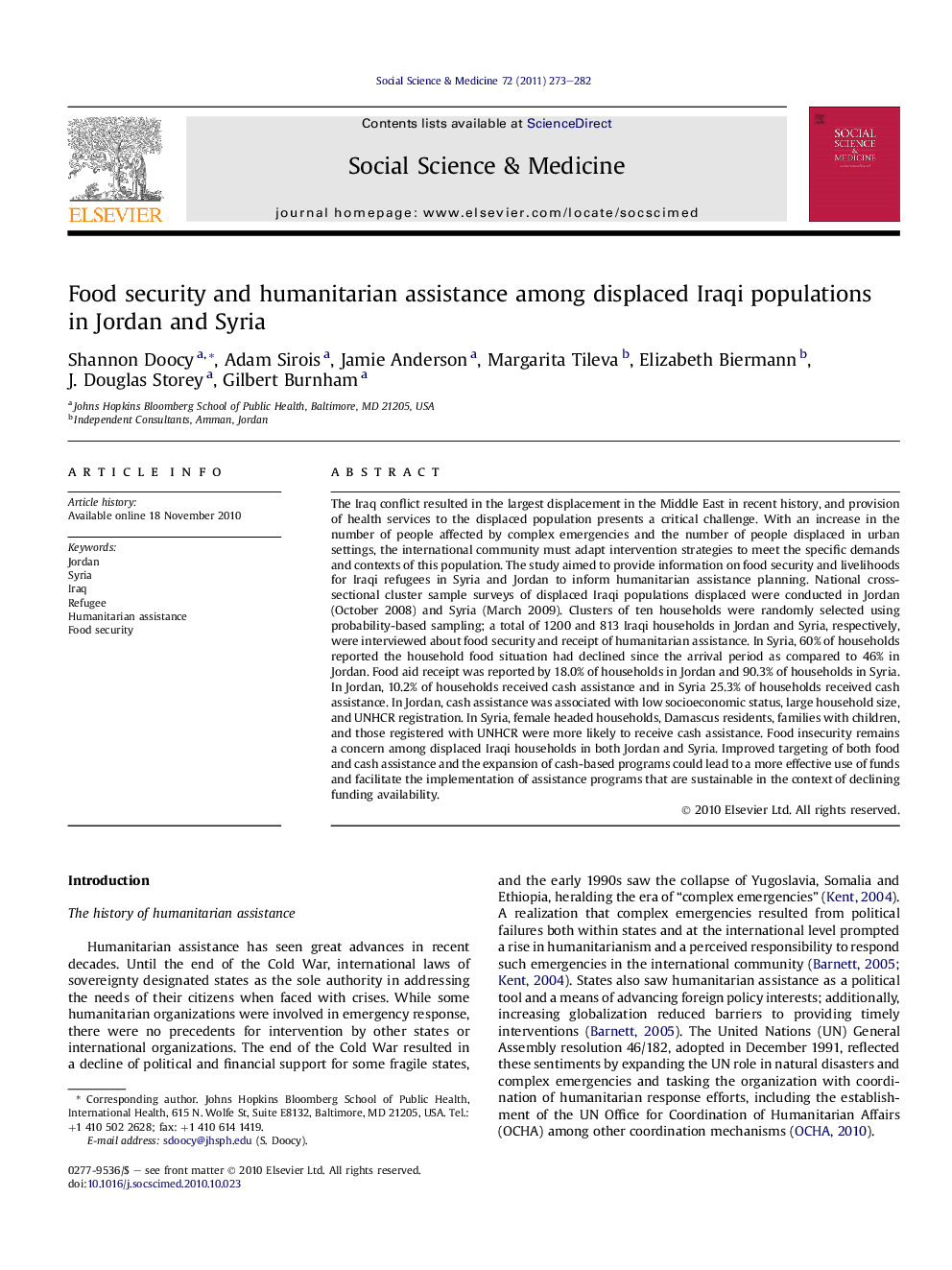| کد مقاله | کد نشریه | سال انتشار | مقاله انگلیسی | نسخه تمام متن |
|---|---|---|---|---|
| 952781 | 927539 | 2011 | 10 صفحه PDF | دانلود رایگان |

The Iraq conflict resulted in the largest displacement in the Middle East in recent history, and provision of health services to the displaced population presents a critical challenge. With an increase in the number of people affected by complex emergencies and the number of people displaced in urban settings, the international community must adapt intervention strategies to meet the specific demands and contexts of this population. The study aimed to provide information on food security and livelihoods for Iraqi refugees in Syria and Jordan to inform humanitarian assistance planning. National cross-sectional cluster sample surveys of displaced Iraqi populations displaced were conducted in Jordan (October 2008) and Syria (March 2009). Clusters of ten households were randomly selected using probability-based sampling; a total of 1200 and 813 Iraqi households in Jordan and Syria, respectively, were interviewed about food security and receipt of humanitarian assistance. In Syria, 60% of households reported the household food situation had declined since the arrival period as compared to 46% in Jordan. Food aid receipt was reported by 18.0% of households in Jordan and 90.3% of households in Syria. In Jordan, 10.2% of households received cash assistance and in Syria 25.3% of households received cash assistance. In Jordan, cash assistance was associated with low socioeconomic status, large household size, and UNHCR registration. In Syria, female headed households, Damascus residents, families with children, and those registered with UNHCR were more likely to receive cash assistance. Food insecurity remains a concern among displaced Iraqi households in both Jordan and Syria. Improved targeting of both food and cash assistance and the expansion of cash-based programs could lead to a more effective use of funds and facilitate the implementation of assistance programs that are sustainable in the context of declining funding availability.
Research highlights
► One of the few quantitative studies of Iraqi refugee households in Jordan and Syria.
► Explores the provision of humanitarian assistance, including household- level predictors of receipt of food aid and cash assistance.
► Identifies substantial differences in humanitarian assistance programs for Iraqi refugees in Jordan and Syria.
► Argues that cash disbursements may be more effective than food aid as a means of assisting Iraqi refugee households.
Journal: Social Science & Medicine - Volume 72, Issue 2, January 2011, Pages 273–282